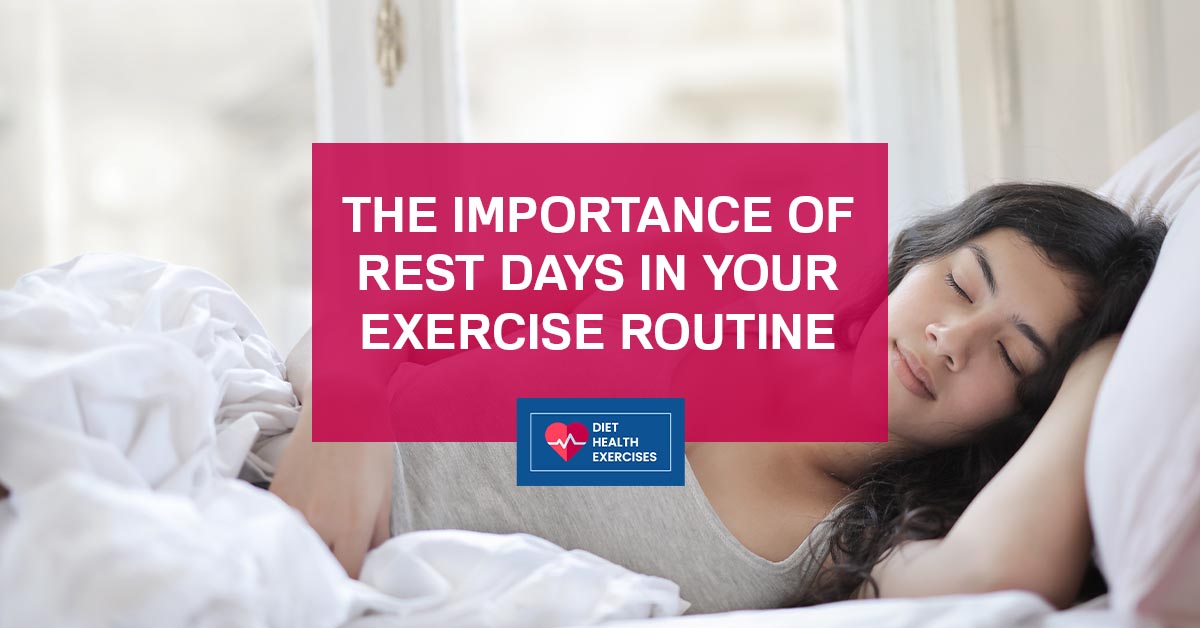In a world that celebrates productivity and hustle culture, it’s easy to forget the importance of rest. We often push ourselves to the limit, believing that we’ll achieve more if we work harder and longer. But the reality is that rest is just as important as work when it comes to reaching our goals. In fact, taking regular rest days can actually boost your motivation and prevent injury. It may seem counterintuitive, but allowing your body and mind to recharge can help you perform better in the long run.
In this article, we’ll explore the benefits of rest days and how they can help you achieve your fitness and wellness goals. Whether you’re an athlete, a fitness enthusiast, or simply looking to improve your overall health, understanding the importance of rest days is essential to your success. So, take a deep breath, relax, and let’s dive into the world of rest and recovery.
Table of Contents
ToggleThe Importance of Rest Days for Physical and Mental Health
Rest days are essential for both physical and mental health. Physically, rest days give your body time to recover and repair itself after intense workouts. When you exercise, you create tiny tears in your muscles, which then heal and grow stronger during rest periods. Without rest, these tears can accumulate and lead to overuse injuries such as tendinitis and stress fractures.
Mentally, rest days give your mind a break from the stress and demands of daily life. Exercise is a form of stress on the body, and while it can be a healthy stress, too much of it without rest can lead to burnout and fatigue. Rest days allow you to recharge your mental batteries and come back to your workouts feeling refreshed and motivated.
It’s important to note that rest days don’t mean you have to completely shut down and do nothing. Active recovery, such as yoga, stretching, or light cardio, can still provide the benefits of rest while keeping your body moving.
How Rest Days Can Boost Motivation and Prevent Burnout

Taking regular rest days can actually boost your motivation and prevent burnout. When you’re constantly pushing yourself to work harder and longer, it’s easy to become overwhelmed and lose motivation. Rest days give you time to step back and reflect on your progress, which can help you stay motivated and focused on your goals.
Rest days can also prevent burnout by giving you time to pursue other activities and interests. When you constantly focus on one thing, it’s easy to become bored and lose interest. Rest days give you time to explore new hobbies and activities, which can help you maintain a healthy balance in your life.
The Science Behind Rest and Recovery
The science behind rest and recovery is complex, but it all comes down to the balance between stress and recovery. When you exercise, you create stress on your body, which stimulates muscle growth and adaptation. However, too much stress without adequate recovery can lead to overtraining and injury.
During rest periods, your body repairs and strengthens your muscles, allowing them to adapt to the stress of exercise. This process is known as super-compensation, and it’s the reason why rest is essential for continued progress and improvement.
Common Misconceptions About Rest Days
One common misconception about rest days is that they’re a sign of weakness or laziness. In reality, rest days are a necessary part of any fitness routine, regardless of your level of experience or fitness goals. Another misconception is that rest days should be completely sedentary, with no physical activity at all. While it’s important to give your body time to rest and recover, active recovery can still provide the benefits of rest while keeping your body moving.
Tips for Incorporating Rest Days Into Your Fitness Routine

Incorporating rest days into your fitness routine can be challenging, especially if you’re used to pushing yourself to the limit. However, it’s essential for your overall health and long-term success. Here are some tips for incorporating rest days into your fitness routine:
- Schedule rest days ahead of time and stick to them.
- Use active recovery on rest days to keep your body moving.
- Take advantage of rest days to pursue other activities and interests.
- Listen to your body and adjust your rest days as needed.
- Don’t feel guilty for taking rest days – they’re an essential part of any fitness routine.
The Benefits of Active Recovery on Rest Days
Active recovery on rest days can provide a number of benefits, including increased blood flow and circulation, reduced muscle soreness, and improved flexibility and mobility. Some examples of active recovery activities include:
- Yoga or stretching
- Light cardio, such as walking or cycling
- Foam rolling or massage
- Low-impact activities such as swimming or Pilates
Active recovery can also help you maintain your fitness level and prevent detraining, which is the loss of fitness gains that can occur during periods of inactivity.
How to Determine the Right Amount of Rest for Your Body

The right amount of rest for your body will depend on a number of factors, including your fitness level, age, and goals. As a general rule, it’s recommended to take at least one rest day per week, but this may vary depending on your individual needs.
It’s also important to listen to your body and adjust your rest days as needed. If you’re feeling fatigued or experiencing pain or discomfort, it may be a sign that you need more rest. On the other hand, if you’re feeling energized and motivated, you may be able to push yourself a little harder.
The Risks of Overtraining and the Importance of Rest Days for Injury Prevention
Overtraining is a common risk for athletes and fitness enthusiasts who push themselves too hard without adequate rest and recovery. Overtraining can lead to a number of negative side effects, including decreased performance, increased risk of injury, and burnout.
Taking regular rest days is essential for preventing overtraining and reducing the risk of injury. Rest allows your body to recover and repair itself, which can prevent overuse injuries such as tendinitis and stress fractures.
Rest Day Activities to Promote Relaxation and Recovery

Rest days are the perfect time to indulge in activities that promote relaxation and recovery. Some examples of rest day activities include:
- Taking a hot bath or sauna
- Getting a massage or foam rolling
- Practicing meditation or yoga
- Spending time in nature, such as hiking or walking
- Reading a book or watching a movie
These activities can help you relax and recharge, which can improve your mood, reduce stress, and promote overall wellness.
Conclusion: The Importance of Prioritizing Rest Days for Overall Health and Wellness
In conclusion, taking regular rest days is essential for both physical and mental health. Rest days allow your body to recover and repair itself, which can prevent injury and improve performance. They also give you time to pursue other activities and interests, which can prevent burnout and maintain a healthy balance in your life.
Incorporating rest days into your fitness routine can be challenging, but it’s essential for your long-term success. Use active recovery on rest days to keep your body moving, and take advantage of the opportunity to indulge in activities that promote relaxation and recovery. By prioritizing rest days, you’ll be able to achieve your fitness and wellness goals while maintaining a healthy and sustainable lifestyle.


